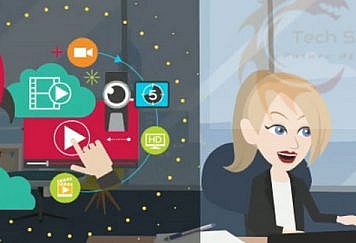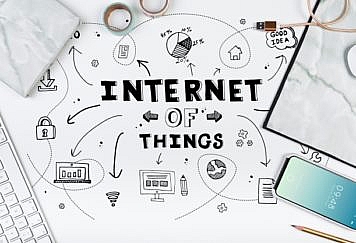For the average person, healthcare technology developments can feel abstract and remote. Something you might read about, or hear about on the news, but never really contemplate unless you find yourself in the position of needing medical intervention.
But you don’t need to be sick to get excited about what is happening in the healthcare industry. In 2022 alone, many developments could have major long-term implications for the future of care. In this article, we take a look at some of those developments, and what they might mean. Read on to learn more about tech developments that had a lasting impact on the healthcare industry in 2022.
Virtual Reality
It’s not quite fair to say that virtual reality is a product of 2022. It has existed in some form or another for decades, long before the Playstation, or whatever your game system of choice is. However, it is fair to say that VR is at its most promising.
Not only is it used for video games, but it is also used as a low-stakes way to provide real professional training. In the context of healthcare, it can be used to help doctors and nurses learn how to respond to a wide range of different emergencies.
The student can try out different solutions, and learn how it feels to be in a high-pressure situation. Now, if you’ve been resisting the temptation to roll your eyes, we hear you. See you? We get your meaning.
Video games, no matter how sophisticated they are, will never fully replicate real-life experiences. However, these programs are testing well with students, and demonstrate significant promise for improving both the training process and patient outcomes of the future.
mRNA, (or Messenger Ribonucleic Acid)
mRNA or messenger ribonucleic acid was used with much success in the rapid development of Covid-19 vaccines. Researchers are excited by the potential that this technology has for the rapid, low-cost development of vaccines and other forms of medicine.
mRNA works by carrying genetic information from DNA, allowing information to be rapidly communicated to encourage a swift immune response. Not only is this method extremely effective but it is also proven to be a very affordable way to develop vaccines.
AI
AI is being used more and more to diagnose diseases. It’s an unusual, even uncomfortable development that calls into question the future of human beings in health care. Isn’t diagnostic work the responsibility of doctors? Just how trustworthy can a computer program be at accomplishing it?
Early reports indicate that it can be very trustworthy. Take breast cancer as an example. Artificial intelligence programs can make determinations about mammograms up to thirty times faster than human beings. What’s more, their diagnoses are 99% accurate.
Well, that’s great for 99 out of one hundred women, but what about the one who gets the short end of the stick?
She’ll be better off than the twelve out of one hundred women who get misdiagnosed by human doctors.
Oh.
Right. AI is quicker and more accurate than human health assessments, saving lives, and reducing the need for unnecessary biopsies.
3d Printing
3d printing in the healthcare industry can be used to make completely customized joint replacements. These bespoke surgical items are hyper-precise in how they fit patients. Not only does this save money by reducing waste — products are made to order rather than mass-produced — but it also improves patient outcomes.
Because the products are custom ordered, they tend to fit better, making recovery easier and faster.
Precision Medicine
Precision medicine refers to medications that have been custom-made for the patient based on their genetic code. This is a relatively new phenomenon used prominently in the context of treating cancer.
Though seen as one of the most effective ways to treat cancer, as well as a variety of other rare genetic diseases, there is a long way to go before this method is considered mainstream. Right now, accessibility and a lack of widespread awareness serve as significant barriers to the proliferation of this technology.
Telehealth
Telehealth treatment strategies have been growing in prominence since the height of the pandemic. Then, it was a question of safety. People were being told to eliminate unnecessary outings. Sensitive segments of the population hardly wanted to sit around in a doctor’s office. For them, telehealth services act as a safe long-term solution for the issue of their healthcare.
Telehealth allows patients to communicate directly with their physicians through video calls or text-based communications. This makes it easy to ask simple medical questions without the need to come in for an appointment. For patients, this means that they can get medical advice easily, and more often than once a year as is so often the case with the traditional healthcare model.
Mobile healthcare technology has been another significant development in breaking down barriers to care. This process involves deploying highly flexible vehicles into communities to deliver a wide range of medical services.
This makes it easy for people who are unable to get to appointments due to physical or financial limitations to still receive at least basic care.
Conclusion
As with any other technological advancement, only time can provide true context for the breakthroughs described above. It may very well be that one or more of them helps to redefine the entire industry in the next several years. It’s equally possible that they are all fads, to be replaced by bigger, better versions of themselves in the years to come.
Medical technology is all about progress. No matter the ultimate fate of the development described above, all of them are helping to contribute to a brighter future.
Follow TechStrange for more Technology, Business, and Digital Marketing News.





